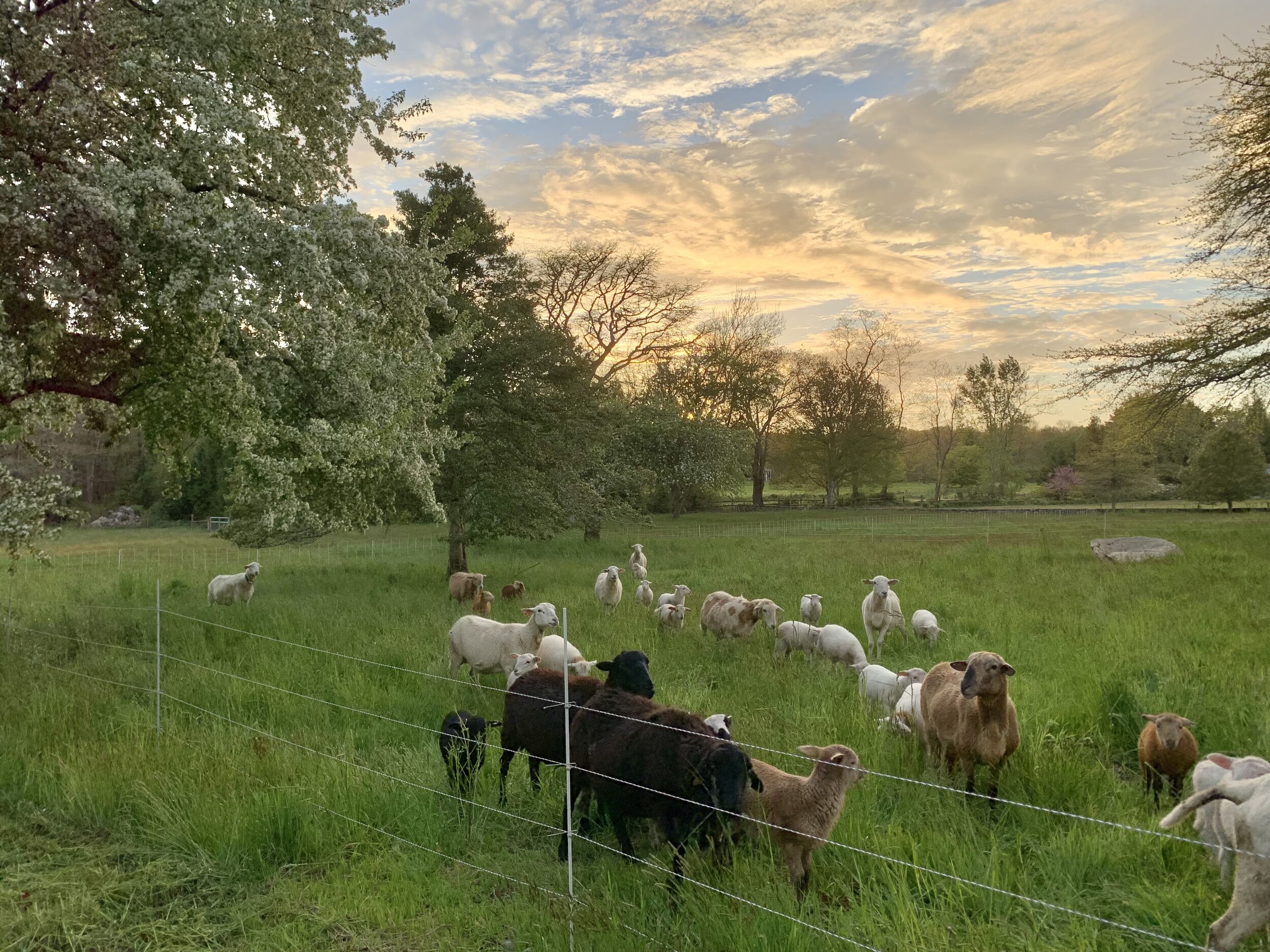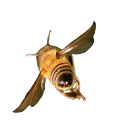
Bred and born on our farm, pasture raised, no antibiotics, synthetic hormones, or pesticides.
Our flock started out when we purchased six Katahdin ewes from Waldoview Farm in Winterport, Maine in 2015. We named them after music Icons: Lykke (Li), (Sharon) Foo, D’arcy (Wretsky), Channy (Leaneagh), (Joan) Jett and of course (Debbie) Harry. Our next generation welcomed eleven lambs to the farm, which we attempted to name after NPR correspondents, but after “Herwick” and “Daigle” our nieces started taking over the naming privileges. We now have some twenty breeding ewes now, and although we no longer pick a generational naming theme we still name every one, as we feel it is part of our philosophy of respecting our animals.
-

Katahdin Sheep
The Katahdin breed was developed in Maine in the mid-20th century. The breed originator, Michael Piel, spent decades creating a new breed of sheep that produces high-quality meat and does not have to be shorn, but grows a soft goat-like coat in place of wool. Katahdins are hardy grazers, good lambers, and are easier to keep than other breeds since they lack wool as well as horns, which appealed to beginning shepherds such as ourselves. We also think they are especially beautiful, with their long tails and unique markings.
-

Breeding
Each year we selectively breed our sheep to produce the healthiest, best conditioned animals we can. We carefully manage their health through pregnancy and lambing, allowing the lambs to nurse from their mothers until they wean naturally. While all our meat lambs are fully grass-fed, pregnant and lactating Ewes get some high-quality organic grain in addition to fresh pastures and tasty homemade hay to support their full nutritional needs. We do occasionally sell breeding ewes and rams, subject to availability. Please email adam@beebaafarm.com for inquiries.
-
Pastures
The secret to good sheep is good grass. Spring, summer and fall we rotationally graze our sheep to maximize the health of the animals and of the land. Managing pastures can include reseeding to supply the sheep and pollinators with plenty to forage, controlling invasive species, resting areas to prevent erosion and compaction, and amending the soil with with minerals deficient in our region. We also collaborate with our neighbors at High Meadow Farm to make hay to feed the sheep all winter, selling surplus hay to other livestock owners nearby.
-
Processing
We feel lucky to live nearby Meatworks, the processing facility run by The Livestock Institute of Southern New England. Meatworks is a USDA-Inspected multi-species meat processing facility offering “The highest animal welfare and humane handling standards. The highest food safety standards. Full traceability from drop off to pick-up via our integrated scale system. Vacuum packaging and Value-added services.” The facility was designed with the consultation of author, activist, + Professor of Animal Science Temple Grandin.
-
Fleeces
In addition to high quality meat, Katahdins produce beautiful fleeces. We prefer not to let any part of the animal go to waste, and have our hides professionally tanned by Bucks County Fur Products, “a family owned and operated business of just 4 family employees… We produce the softest, most supple natural leather along with the cleanest most beautiful wool as a product of our tanning process without the use of any bleaches or dyes.”
-
Lambscaping + Solar Grazing
We do occasionally partner with nearby landowners to manage vegetation on their property with our flock. Our priority is to our animals and customers to make sure that the lambs are grazing top-quality pasture with no pesticide or conventional fertilizers. We also have a special management program for grazing solar farms. Click here for more info.


